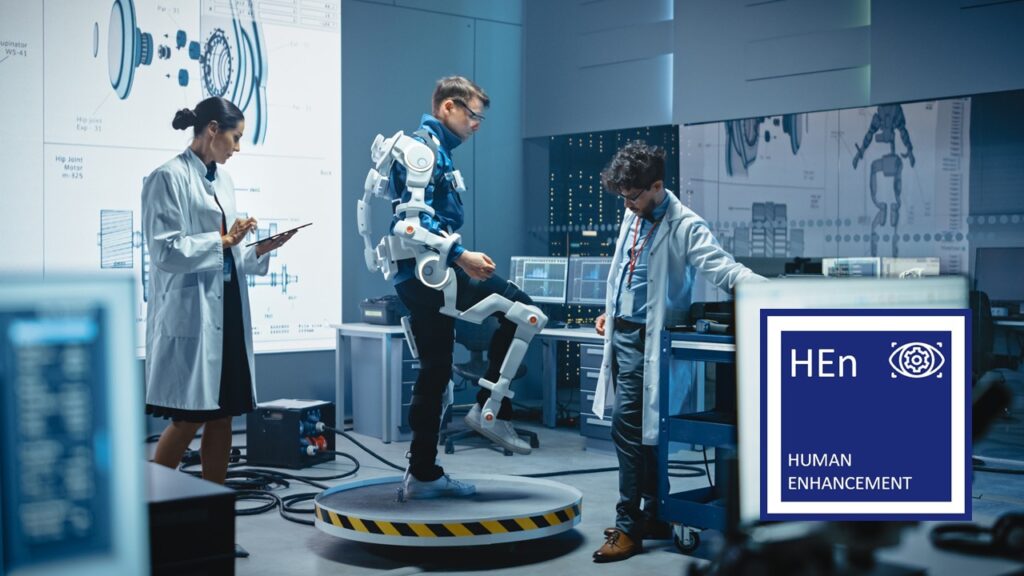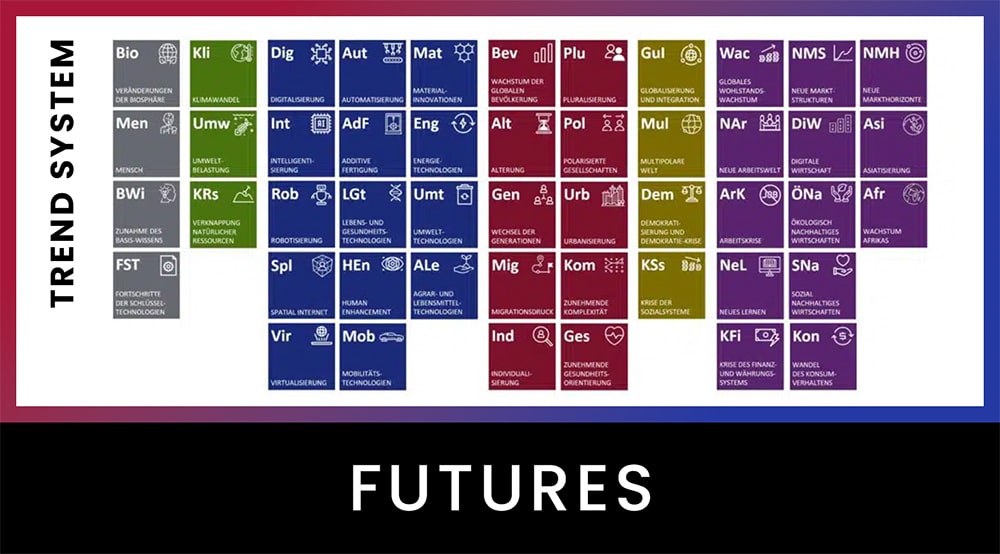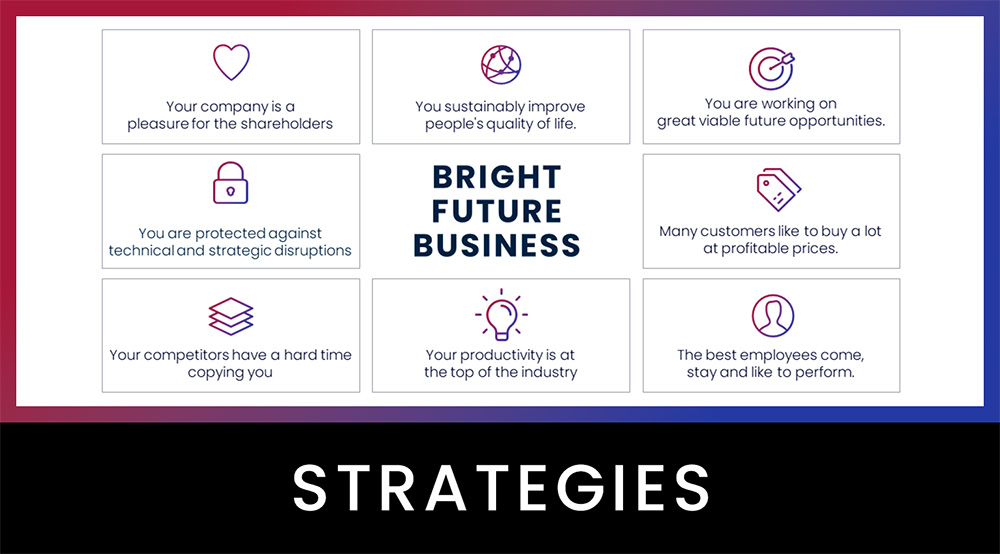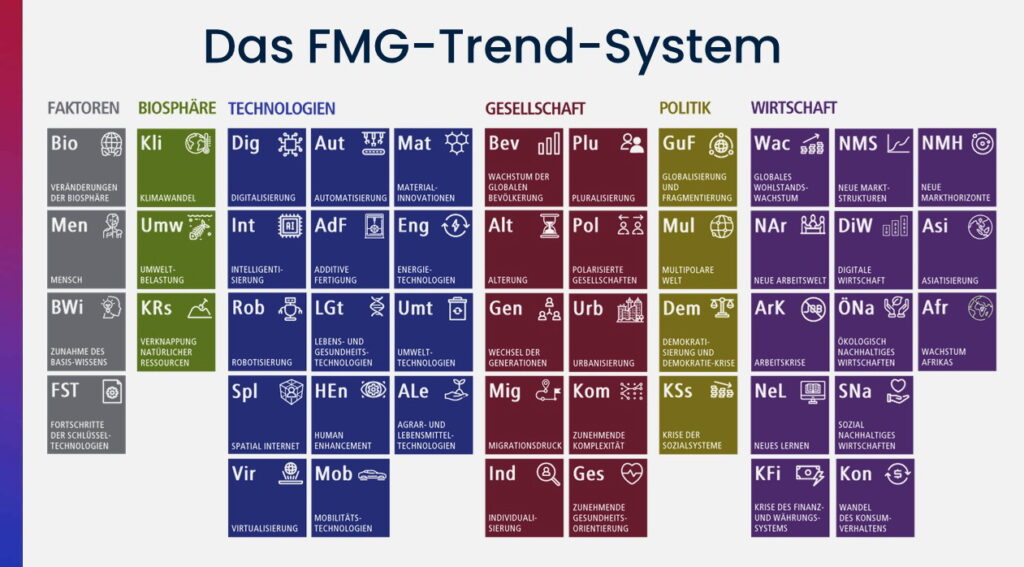Megatrend human enhancement
From the FMG Trend System: For your future-proof company
Human enhancement – The human being in technological awakening
Human enhancement describes the technological trend of specifically improving the human body and mind beyond natural limits. The idea of the “optimized human” is no longer a vision of the future – it is increasingly becoming reality: people are having chips implanted, optimizing their performance with medication or improving their interaction with machines through new interfaces.
This megatrend has far-reaching ethical, social and economic implications. It affects not only medicine and biotechnology, but also the world of work, education, the military, sport and consumer goods markets. To the overview of all megatrends

What does human enhancement mean for companies?
There are many opportunities and challenges for companies. New markets are emerging – for example for neuro-enhancers, intelligent implants or adaptive interfaces. At the same time, companies need to consider the responsible use of technologies and their social impact: Where does optimization end? And who has access to it?
The demand for cognitive performance enhancement will grow, particularly in knowledge-intensive industries. Enhancement technologies can also play a role in the context of skills shortages, securing the workforce and diversity – whether in a supportive, compensatory or preventative capacity.
- Alongside human motives, human enhancement and other technologies are the most transformative trends. We use our tools to shape the world, mostly to our advantage.
- The human enhancement megatrend is just one of many that could be relevant to the future of your business.
- In addition to megatrends from the biosphere, society, politics and the economy, the FMG trend system also includes the drivers that trigger trends such as human enhancement, the future factors. To the overview of all megatrends
Three key developments in the field of human enhancement
1. human-machine interfaces
New interfaces between body, brain and technology enable intuitive interaction with digital systems. Machines are increasingly adapting to the cognitive and physical abilities of humans.
Thought interfaces enable computers to be controlled solely by brain activity.
Voice technologies improve communication through intelligent dialog systems.
Gesture recognition translates body movements into control commands – for example in robotics or consumer electronics.
Multimodal interfaces combine facial expressions, speech and gestures to create a natural control system.
Affective computing recognizes emotions and adapts the machine’s response accordingly.
Materialization of digital information makes digital content physically tangible – for example through shape-shifting surfaces.
2. transhumanism – the step towards a new evolutionary stage
Transhumanism aims to fundamentally develop humans further – through technology, biology and digitalization. The aim is to extend the human lifespan, performance and perception beyond natural limits.
Chip implants store personal data or allow communication with external systems.
Cryonics aims to preserve people by freezing them so that they can be revived in the future.
Bionics replaces or supplements bodily functions with intelligent prostheses, organs or exoskeletons.
Genetic enhancement specifically intervenes in the genome to optimize certain characteristics.
3. overcoming human barriers to performance
More and more people are striving to improve their cognitive, emotional and physical abilities. This trend ranges from lifestyle optimization to targeted performance enhancement.
Neuro-enhancement involves the use of medication to improve concentration, memory and mood.
Body enhancement changes the appearance through plastic surgery, training or cosmetic products.
Self-enhancement through supplements aims to increase energy, focus or well-being.
Genetic enhancement (non-therapeutic) promises to select intelligence, creativity or physique in the long term.
Affective computing in everyday life could recognize and directly influence emotional states – e.g. via light, speech or temperature.
Conclusion: Using human enhancement as a targeted opportunity
Human enhancement is more than just a trend – it is a fundamental technological and social development.
Companies can open up new markets, increase productivity or support employee health.
At the same time, ethical issues of accessibility, fairness and risk responsibility are central.
- With the Future Radar Program, you can identify which developments relating to human enhancement are relevant for your industry – and how you can benefit from them responsibly.



































